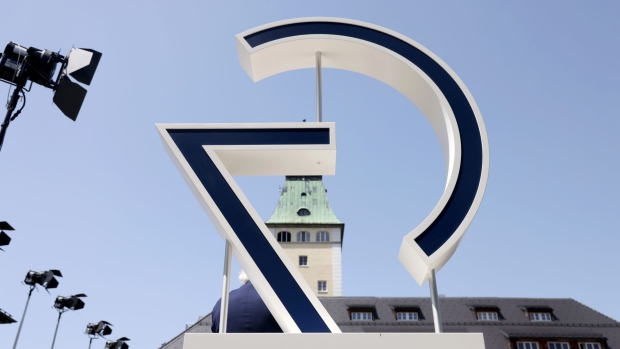Jun 28, 2022
G-7 Latest: Leaders to Order Exploration of Cap on Russian Gas
, Bloomberg News

(Bloomberg) -- Group of Seven leaders are expected to announce they will instruct ministers to explore implementing a price cap on Russian gas on the concluding day of their three-day summit in the Bavarian Alps.
The move by the club of rich nations comes as part of a broader push to choke off the profits Russia makes from energy exports that are helping to fund its war on Ukraine, the dominant topic at the gathering. In their final communique later on Tuesday, the leaders are also expected to mention a mechanism to cap prices on Russian oil.
German Chancellor and summit host Olaf Scholz and his fellow leaders published a statement in which they condemned what they said was Russia’s “abominable” missile attack on a shopping mall in central Ukraine on Monday, which left at least 18 people dead and dozens injured.
Key Developments
- G-7 to Tell Ministers to Explore Price Cap on Russian Gas
- G-7 Edges Closer to Ditching Pledge to End Fossil-Fuel Financing
- G-7 Set to Agree on Exploring a Price Cap on Russian Oil
- Besieged at Home, Johnson Misses Out on G-7 Moment With Biden
- US Resuscitates Bid at G-7 to Counter China’s Belt and Road
(All times CET)
G-7 Says Kremenchuk Attack a ‘War Crime’ (7:30 a.m.)
In their statement on the attack in Kremenchuk, G-7 leaders said that “indiscriminate attacks on innocent civilians constitute a war crime” and vowed that Russian President Vladimir Putin and those responsible would be held to account.
“We will continue to provide financial, humanitarian as well as military support for Ukraine, for as long as it takes,” according to the statement.
Yellen Presses Europeans on Price Cap for Oil (7 a.m.)
US Treasury Secretary Janet Yellen is pressing European counterparts to embrace measures designed to enforce a price cap on Russian oil, a move that officials in Washington hope will maintain global supplies while at the same time limiting Moscow’s revenue.
Yellen spoke Monday with Constantinos Petrides, the finance minister of Cyprus, a major maritime player that serves as Europe’s largest ship-management center. The two “spoke about the goal of placing a price limit on Russian oil to deprive the Kremlin of revenue to finance their war in Ukraine while mitigating spillover effects for the global economy,” the Treasury said in a statement.
©2022 Bloomberg L.P.






